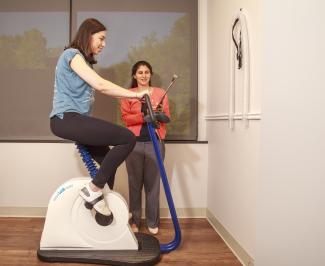Unleashing the Power of Exercise for Traumatic Brain Injury Recovery
Employing Strategies to Combat Mood Disturbances Post Injury
By Carolann Murphy, Senior Medical Writer, Media/Communications
As we recognize Brain Injury Awareness Month, we continue to highlight the Foundation’s many contributions to traumatic brain injury (TBI) research. Mood disturbances, including feelings of anxiety, depression, anger, and confusion, adversely affect the quality of life after TBI, contributing to challenges in rehabilitation and recovery. Traditional treatment is often inadequate, underscoring the need for innovative, accessible, and effective interventions.
A recent article by scientists from the Center for Neuropsychology and Neuroscience Research and the U.S. Army Research Institute of Environmental Medicine, emphasizes the potential of exercise training as a behavioral approach for mood disturbances. This review, "Exercise as a behavioral approach to improve mood in persons with traumatic brain injury," published in the PM&R Journal, presents a compelling rationale for including exercise in treatment plans and supports initiatives that explore the full potential of exercise as a powerful tool in the rehabilitation of people striving to recover from TBI.
Greater emphasis on mood assessment is needed in this population, as well as further research to determine the optimal types, intensities, and duration of exercise training that are most beneficial for mood improvement. The researchers also recommend looking beyond the immediate effects of exercise to explore the long-term benefits and potential mechanisms behind these improvements.
Learn more about ongoing studies in TBI research at Kessler Foundation.

